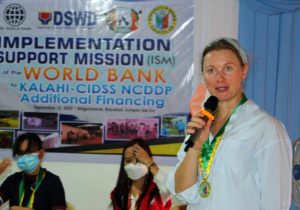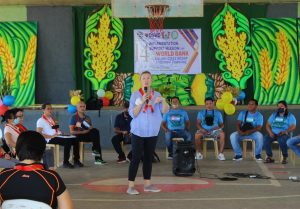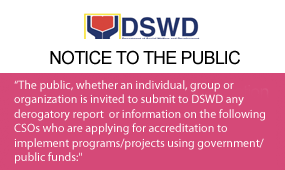
The World Bank has conducted the 14th Implementation Support Mission (ISM) for DSWD Field Office Caraga’s implementation of the KALAHI-CIDSS National Community-Driven Development Program (NCDDP) Additional Financing this month.
Six World Bank specialists, headed by Senior Social Development Specialist Ditte Marie Fallesen, visited barangays Magobawok and La Paz in Bayabas on Sept. 12-13; and barangays Julio Ouano and Anahaw in Alegria, Surigao del Norte on the following day.
“From the World Bank side, we go out of these missions twice a year. During COVID, however, we haven’t traveled at all. We haven’t been able to see the communities. This is our first visit outside of Manila in three years, so we are very happy to be here,” Fallesen said.
Fallesen told the community members that they conducted such mission to know their experiences and accomplishments during the implementation of the subprojects under NCDDP-Additional Financing, a modality that aims to address needs during the COVID-19 pandemic.
During the visits, World Bank delegates conducted focus group discussions with municipal and barangay officials and community volunteers to know how they worked and engaged with the process of implementing the NCDDP-Additional Financing during the height of the pandemic and how the program has impacted their lives and their community.
Part also of the visit is to review the project performance of the NCDDP-Additional Financing operations, including the status of the procurement plan, updates on financial management, the status of environmental and social safeguards compliance, and updates on the enhanced monitoring and evaluation system.
Staff from the KALAHI-CIDSS National Program Management Office (NPMO), headed by the National Program Manager Ma. Consuelo Acosta, as well as staff from the Regional Program Management Office (RPMO), accompanied the World Bank delegates to ensure a smooth and successful mission.

“We enjoy our visit here. Thank you for all of you and the entire community for welcoming us so warmly,” Fallesen said.
During the exit conference on Sept. 15, the World Bank team presented their mission observations to the NPMO and RPMO.
Fallesen highlighted that Community-Driven Development (CDD) is very much embraced by the participants, saying that there is a strong volunteer mobilization despite health restrictions during the pandemic and that the volunteers really appreciate the CDD process and projects.
“We’ve been very, very impressed with the work that’s in place in the barangays and the municipalities overall,” Fallesen said.
DSWD Caraga Assistant Regional Director for Operations Jean Paul S. Parajes, on behalf of Regional Director Mari-Flor A. Dollaga, said the activity is very important for the Department.
“Monitoring visits, such as this, has always been very important for us in DSWD. Through your observations, findings, and recommendations, we in the Department, would be able to improve our service delivery to the poor, vulnerable, and disadvantaged communities in the region,” Parajes said.
“Let me extend my heartfelt gratitude for World Bank’s Additional Financing that greatly helped our region during the height of the COVID-19 pandemic. And of course, my thanks and salute to the dedication and commitment of our KALAHI-CIDSS staff and partner stakeholders – the local government units and the community volunteers,” ARDO Parajes added.
World Bank is the funding donor of the development projects of KALAHI-CIDSS in the country via a loan to the National Government.
KALAHI-CIDSS, otherwise known as the Kapit-Bisig Laban sa Kahirapan-Comprehensive and Integrated Delivery of Social Services, is one of the poverty alleviation programs of the national government being implemented by the Department of Social Welfare and Development (DSWD). It uses the community-driven development (CDD) approach, a globally recognized strategy for achieving service delivery, poverty reduction, and good governance outcomes.


